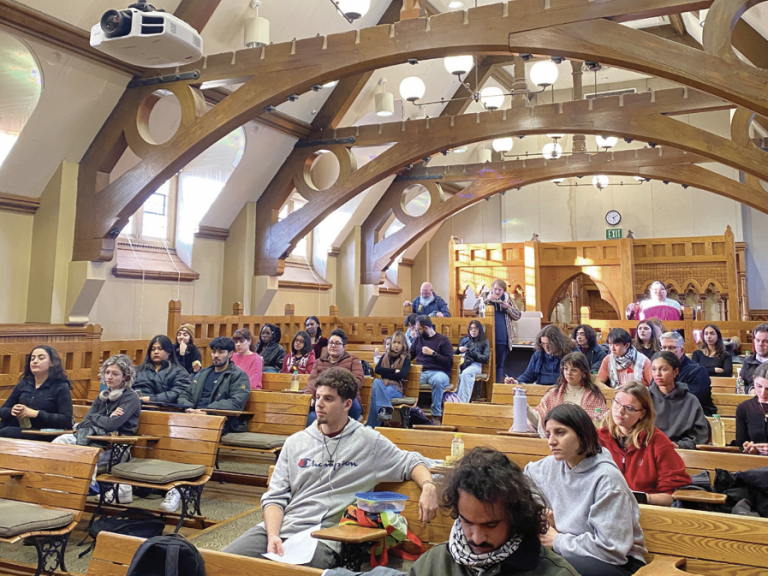Gillian Reinhard ’20
Editor-in-Chief
Composting in Mather has seen a minor shift in structure as of Mar. 25. According to sustainability coordinator Rose Rodriguez, the compost bins have experienced “quite a bit of contamination,” meaning that products (such as paper coffee cups or plastic straws) have been improperly put into these bins.
Trinity works in collaboration with Blue Earth Compost, which transports Trinity’s compost to two locations, one which composts just food and another which composts both food and products such as compostable smoothie cups. For Trinity to be able to increase its opportunity to compost at the second facility, the community must significantly reduce its rate of contamination in the compost bins. In response to this, two compost bins have been designated as solely for food, while another will be reserved for compostable materials such as smoothie cups. Although contaminated bins do send a fine to be covered by Trinity, the rest of the products in the bins can still be composted. However, Green Campus co-president Nat Bush ’19 noted, “we need to achieve a low or nonexistent contamination rate in Mather.” Additionally, Rodriguez indicated that compost initiatives would be introduced to the Crescent Street townhouses during the 2019-2020 school year, although specifics, particularly in regard to funding from the SGA, have not been determined yet.
Additionally, the campus has seen the elimination of plastic straws from Mather, the Bistro, and the Cave. Rodriguez stressed that the policy is “straws upon request,” meaning that any student who would like a straw can ask at anytime. The SGA and students generally invested in sustainability on campus have advocated for this change over a long period of time, and the agreement was approved by Chartwells. SGA Sustainability Liaison Trinna Larsen ’20 voiced her support for the decision, saying that “when incoming students are welcomed onto campus, we want them to know that it is the norm to not use plastic straws and that Trinity has recognized that students have been fighting for this initiative for a long time.”
Looking forward, the second annual Green Fest will be held on the quad from 2-6 p.m. on Apr. 14. This will also be the first official Trinity event that will compost, answering the question of what makes an event “green,” as pointed out by Rodriguez. Green Fest will feature education on recycling and composting, sustainability trivia, turning t-shirts into tote bags, performances from off-campus bands (including Director for the Office of Community Service and Civic Engagement Joe Barber’s band Hartford Hot Several), and water bottle giveaways. Two vegan trucks (one being 100% sustainable) will be serving food. The event will take place on the first day of Greek Week, with members of campus fraternities and sororities also taking part in the events. “We want to incorporate all aspects of campus life, it should be an event for everyone,” explained Bush. Green Fest will be preceded by a clothing swap in the Cave on Apr. 11 co-sponsored by EROS and Green Campus.
With an increasing amount of important sustainability plans on campus, the need for more student volunteers is also increasing. Students interested in sustainability can attend Green Campus meetings on Mondays at 8 p.m. or contact co-president Nat Bush ’19 at nat.bush@trincoll.edu.




+ There are no comments
Add yours